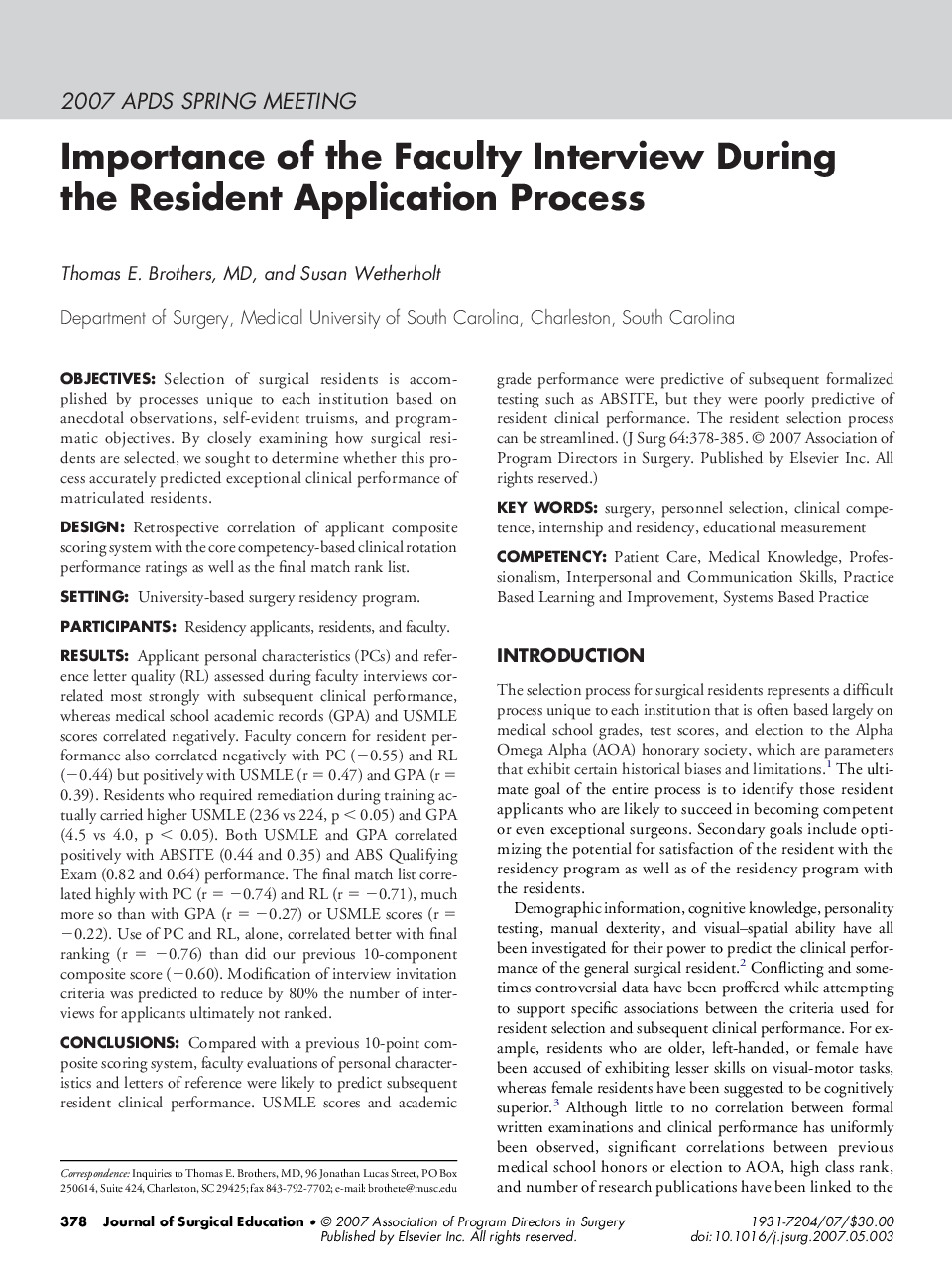| کد مقاله | کد نشریه | سال انتشار | مقاله انگلیسی | نسخه تمام متن |
|---|---|---|---|---|
| 4298838 | 1288370 | 2007 | 8 صفحه PDF | دانلود رایگان |

ObjectivesSelection of surgical residents is accomplished by processes unique to each institution based on anecdotal observations, self-evident truisms, and programmatic objectives. By closely examining how surgical residents are selected, we sought to determine whether this process accurately predicted exceptional clinical performance of matriculated residents.DesignRetrospective correlation of applicant composite scoring system with the core competency-based clinical rotation performance ratings as well as the final match rank list.SettingUniversity-based surgery residency program.ParticipantsResidency applicants, residents, and faculty.ResultsApplicant personal characteristics (PCs) and reference letter quality (RL) assessed during faculty interviews correlated most strongly with subsequent clinical performance, whereas medical school academic records (GPA) and USMLE scores correlated negatively. Faculty concern for resident performance also correlated negatively with PC (−0.55) and RL (−0.44) but positively with USMLE (r = 0.47) and GPA (r = 0.39). Residents who required remediation during training actually carried higher USMLE (236 vs 224, p < 0.05) and GPA (4.5 vs 4.0, p < 0.05). Both USMLE and GPA correlated positively with ABSITE (0.44 and 0.35) and ABS Qualifying Exam (0.82 and 0.64) performance. The final match list correlated highly with PC (r = −0.74) and RL (r = −0.71), much more so than with GPA (r = −0.27) or USMLE scores (r = −0.22). Use of PC and RL, alone, correlated better with final ranking (r = −0.76) than did our previous 10-component composite score (−0.60). Modification of interview invitation criteria was predicted to reduce by 80% the number of interviews for applicants ultimately not ranked.ConclusionsCompared with a previous 10-point composite scoring system, faculty evaluations of personal characteristics and letters of reference were likely to predict subsequent resident clinical performance. USMLE scores and academic grade performance were predictive of subsequent formalized testing such as ABSITE, but they were poorly predictive of resident clinical performance. The resident selection process can be streamlined.
Journal: Journal of Surgical Education - Volume 64, Issue 6, November–December 2007, Pages 378–385